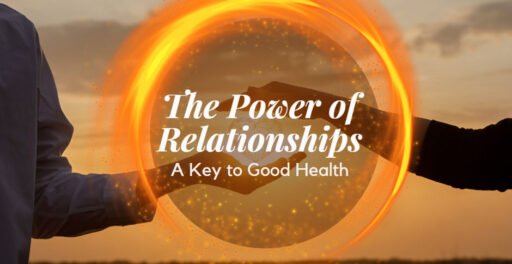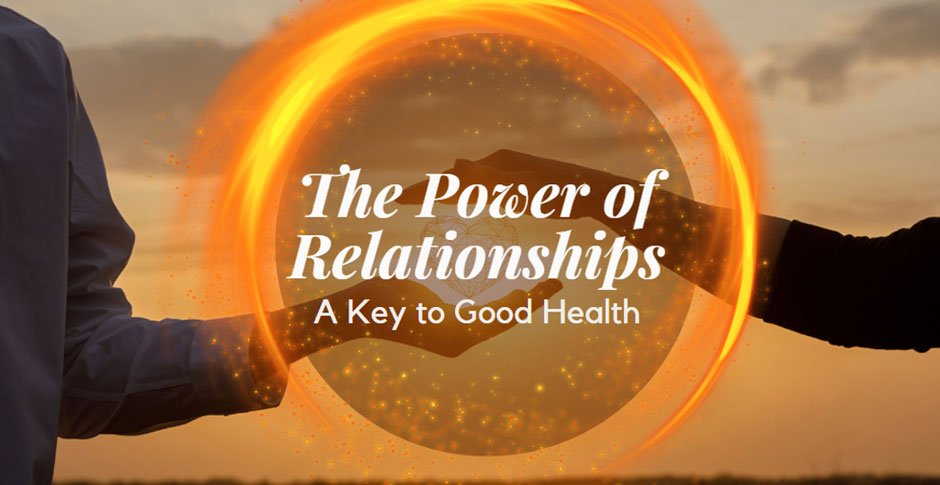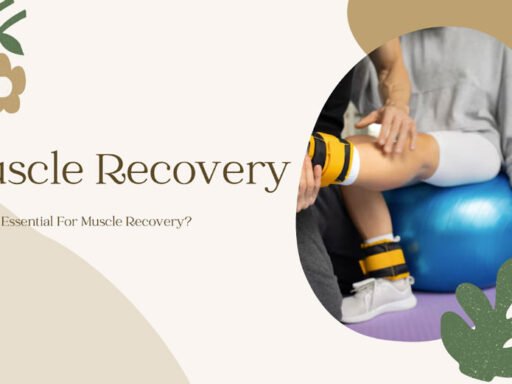Have you ever stopped to ponder the profound influence your relationships wield over your well-being? It’s truly remarkable how interconnected our social bonds are with our mental and physical health. Did you know that the quality of your relationships can influence not only your mood but also your immune system’s strength and your overall longevity?
Studies have shown that individuals with strong social connections are not only happier but also healthier. For instance, did you know that people with robust social networks have lower levels of inflammation in their bodies, reducing their risk of chronic diseases such as heart disease and diabetes. It’s astonishing to think that something as simple as spending time with loved ones can have such a profound impact on our physical vitality.
In this article, we’ll exoand the fascinating link between relationships and health. Together let’s uncover the science behind this connection and exploring expert relationship advice on how to nurture our social bonds for improved well-being.
Benefits of Strong Relationships
It’s no secret that strong social connections are linked to better mental health. But did you know that they also influence your physical health? Studies have shown that nurturing healthy relationships can lead to lower rates of anxiety and depression, higher self-esteem, and increased empathy. Moreover, having a supportive social network can bolster your immune system, aid in disease recovery, and potentially even extend your lifespan.
Here’s some of its benefits:
- Enhanced Mental Health: Strong social connections have been associated with lower rates of anxiety and depression, providing vital emotional support during challenging times.
- Increased Self-Esteem: Nurturing healthy relationships can boost self-esteem, fostering a sense of belonging and validation within social circles.
- Heightened Empathy: Engaging with others in meaningful relationships promotes empathy and understanding, leading to more compassionate interactions and deeper connections.
- Strengthened Immune System: Having a supportive social network has been linked to a stronger immune system, helping to fend off illnesses and infections more effectively.
- Improved Disease Recovery: Support from loved ones can aid in the recovery process from illnesses or medical procedures, providing emotional and practical assistance during times of need.
- Potential Lifespan Extension: Studies suggest that individuals with strong social connections may experience a longer lifespan, highlighting the profound impact of relationships on overall health and longevity.
- Personal Happiness: Beyond the physical benefits, strong relationships contribute to personal happiness and fulfillment, enriching life experiences and providing a sense of joy and contentment.
- Emotional Well-Being: The positive effects of social connections create a ripple effect, spreading feelings of emotional well-being and positivity to those within your social circle.
Improving Your Social Connections
But the benefits of relationships extend far beyond just our physical health. Did you know that maintaining strong social connections can also sharpen your cognitive abilities and even slow down age-related cognitive decline? That’s right – engaging in meaningful conversations and activities with friends and family can keep your brain sharp and agile as you age.
Moreover, the benefits of social connections aren’t limited to our own well-being – they also extend to those around us. Did you know that simply being in the presence of someone who is experiencing positive emotions can boost your own mood? It’s called emotional contagion, and it’s a fascinating phenomenon that highlights the interconnectedness of our emotions and social interactions.
Feeling lonely can be challenging, but there are steps you can take to combat it. Start by nurturing meaningful relationships in three key areas:
- Intimate Connections: Cultivate deep bonds with family and friends who love and support you.
- Relational Connections: Engage with individuals you see regularly and share common interests, such as coworkers or acquaintances.
- Collective Connections: Connect with groups or communities that share your values or interests, whether it’s a religious group, hobby club, or volunteer organization.
Consider the types of relationships you currently have and the ones you’d like to develop further. Reach out to old friends, coworkers, or neighbors, and explore opportunities to meet new people through sports teams, hobby groups, or community events. Remember, building connections takes time and effort, but the rewards are well worth it.
Loneliness and Its Impact
Conversely, loneliness can have detrimental effects on your health. It’s not just a fleeting feeling of solitude – it can wreak havoc on your body and mind. Loneliness has been linked to disrupted sleep patterns, elevated blood pressure, and increased stress levels. Moreover, it can weaken your immune system, leaving you more vulnerable to illness.
Older adults, in particular, are susceptible to the negative effects of loneliness, but younger individuals can also suffer from its consequences. Research has illuminated the profound impact of loneliness on various aspects of health:
- Disrupted Sleep Patterns: Loneliness can disrupt your sleep, leading to difficulties falling asleep or staying asleep throughout the night. These disturbances can contribute to feelings of fatigue and exhaustion during the day, impairing your cognitive function and overall quality of life.
- Elevated Blood Pressure: Prolonged loneliness has been associated with elevated blood pressure levels. This increase in blood pressure can put strain on your cardiovascular system, potentially increasing your risk of heart disease, stroke, and other cardiovascular conditions.
- Increased Stress Levels: Loneliness can trigger chronic stress responses in the body, leading to heightened levels of stress hormones such as cortisol. Over time, chronic stress can negatively impact your physical health, contributing to inflammation, weakened immune function, and a range of other health problems.
- Weakened Immune System: Research suggests that loneliness can weaken your immune system, making you more susceptible to infections and illnesses. A compromised immune system can leave you vulnerable to a range of health issues, from the common cold to more serious infections.
- Susceptibility to Mental Health Disorders: Loneliness is closely linked to mental health disorders such as depression and anxiety. Feelings of loneliness can exacerbate existing mental health issues and increase the risk of developing new ones. The isolation and despair associated with loneliness can have profound effects on your psychological well-being.
While older adults may be particularly vulnerable to the negative effects of loneliness due to factors such as social isolation and limited mobility, younger individuals are not immune to its consequences. The prevalence of loneliness among younger generations underscores the importance of addressing this issue across all age groups.
Loneliness is a significant public health concern with far-reaching implications for physical and mental health. Recognizing the impact of loneliness and taking proactive steps to address it can help mitigate its harmful effects and promote overall well-being. Cultivating meaningful social connections, seeking support when needed, and engaging in activities that foster a sense of belonging and connection are essential steps in combating loneliness and promoting a healthier, happier life.
How to Maintain a Healthy Relationship: Expert Relationship Advice
If you are looking to maintain a healthy and fulfilling relationship, expert relationship advice can provide valuable insights and strategies.
Here are some key tips to help you nurture and strengthen your bond with your partner:
- Effective Communication: Communication is the foundation of a healthy relationship. Be open, honest, and transparent with your partner. Listen actively and empathetically, and express your thoughts and feelings openly and respectfully.
- Quality Time Together: Make time for each other despite busy schedules. Schedule regular date nights or activities that you both enjoy. Spending quality time together strengthens your connection and reinforces your bond.
- Mutual Respect: Treat each other with kindness, respect, and empathy. Value your partner’s opinions, feelings, and boundaries. Show appreciation for their efforts and support them in their goals and aspirations.
- Trust and Honesty: Build trust through honesty, reliability, and consistency. Be trustworthy and avoid deception or betrayal. Communicate openly about any concerns or doubts, and work together to resolve issues and rebuild trust if it’s been compromised.
- Maintain Independence: While it’s important to prioritize your relationship, maintaining individual interests and hobbies is equally crucial. Encourage each other to pursue personal growth and fulfillment outside of the relationship.
- Conflict Resolution Skills: Disagreements and conflicts are normal in any relationship. Learn to navigate conflicts calmly and constructively, focusing on finding solutions rather than escalating tensions. Practice active listening, compromise, and forgiveness.
- Support Each Other: Be each other’s biggest cheerleader. Offer support, encouragement, and comfort during both triumphs and challenges. Celebrate each other’s successes and provide a shoulder to lean on during difficult times.
- Maintain Intimacy: Physical and emotional intimacy are vital components of a healthy relationship. Keep the spark alive by prioritizing intimacy, whether through affectionate gestures, intimate conversations, or physical closeness.
- Continuous Growth and Adaptation: Relationships evolve over time, and it’s essential to adapt and grow together. Be willing to learn from each other, compromise, and make adjustments as needed to ensure that your relationship remains fulfilling and satisfying.
- Seek Professional Help if Needed: If you’re facing significant challenges or struggling to maintain a healthy relationship, don’t hesitate to seek professional help. Relationship counseling or therapy can provide valuable insights, guidance, and support to help you overcome obstacles and strengthen your bond. Remember, seeking help is a sign of strength and commitment to the health of your relationship.
The Impact on Society
The benefits of strong relationships extend beyond individual health. Happy and connected individuals contribute to vibrant and thriving communities. By investing in your relationships, you not only enhance your own well-being but also enrich the fabric of society as a whole.
In conclusion, the quality of your relationships plays a crucial role in promoting good health – both for yourself and for those around you. So, take the time to nurture your connections, share your experiences, and build a supportive network that will uplift you in times of need and celebration alike. Your mind, body, and community will thank you for it.
So, the next time you’re tempted to prioritize work or other commitments over spending time with loved ones, remember the myriad benefits that strong relationships offer. Not only do they enhance our happiness and fulfillment, but they also contribute to our overall health and longevity. Investing in our relationships isn’t just a luxury – it’s essential for leading a vibrant and fulfilling life.





